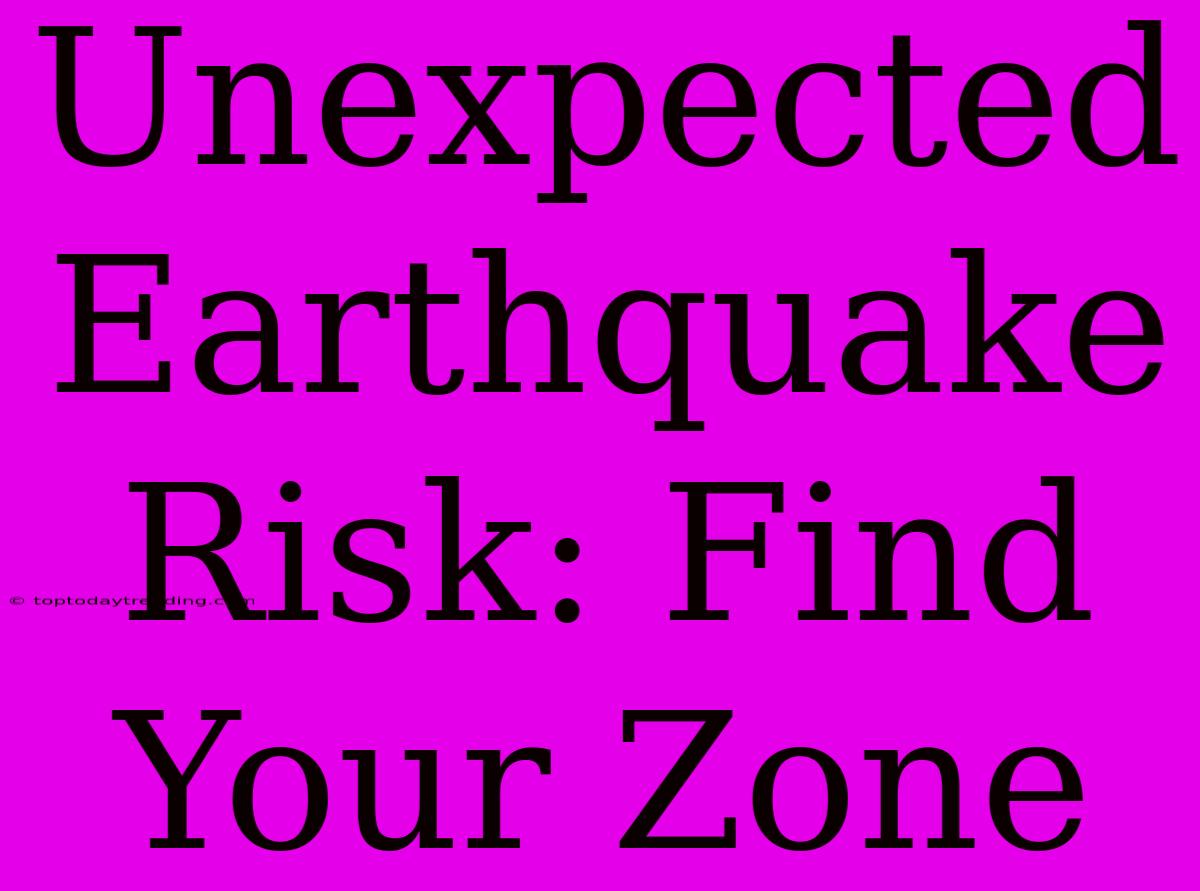Unexpected Earthquake Risk: Find Your Zone
The ground beneath our feet often feels solid, a constant and unwavering foundation for our lives. But beneath that seemingly stable surface lies a complex network of tectonic plates constantly shifting and colliding, creating a powerful force that can shake our world – earthquakes.
While certain regions are known for their seismic activity, the reality is that earthquakes can occur anywhere, even in places we least expect.
Understanding your earthquake risk is crucial, regardless of where you live. It's not just about preparing for the "big one" but also about being aware of the potential for smaller, yet still impactful, events.
Why is Earthquake Risk Often Unexpected?
- Historical Data Limitations: Seismic records often don't stretch back far enough to fully capture the historical frequency and intensity of earthquakes in certain areas.
- Plate Boundaries Aren't the Only Source: While earthquakes are more common along fault lines where tectonic plates meet, they can also happen within plates themselves.
- Fault Mapping Challenges: It can be difficult to accurately map all faults, especially those that are hidden beneath the surface.
- Increased Human Impact: Human activities such as fracking, dam construction, and mining can sometimes trigger or enhance seismic activity.
Finding Your Zone:
You can discover your earthquake risk by utilizing various resources:
- U.S. Geological Survey (USGS): The USGS provides interactive maps and information on earthquake hazards across the United States.
- International Seismological Centre (ISC): The ISC offers a global catalog of earthquakes and earthquake-related information.
- National and Local Agencies: Many countries and regions have their own agencies dedicated to earthquake monitoring and risk assessment.
Once you know your risk level, take proactive steps to prepare:
- Secure Your Home: Anchor heavy furniture, secure shelves, and ensure your home's structure is earthquake-resistant.
- Develop an Emergency Plan: Identify safe zones, create a communication plan, and gather emergency supplies.
- Stay Informed: Subscribe to earthquake alerts and follow reputable sources of information.
- Get Involved: Support earthquake preparedness initiatives in your community and advocate for safety measures.
Remember, even in areas considered low-risk, being prepared for an earthquake is a smart decision. By understanding your zone, you can take charge of your safety and be ready for any eventuality.
Beyond the Immediate Impact:
The consequences of earthquakes extend far beyond the initial shockwaves:
- Aftershocks: Smaller earthquakes following a major quake can cause additional damage and injuries.
- Tsunamis: Earthquakes originating in the ocean can trigger destructive waves.
- Infrastructure Damage: Roads, bridges, buildings, and utility networks can be severely impacted.
- Economic Disruption: Business closures, supply chain disruptions, and financial losses can have long-term effects.
By taking steps to prepare for an earthquake, you are not only protecting yourself but also contributing to the overall resilience of your community.
This is not just about fear. It's about being informed, empowered, and ready to face any challenges that may come our way.

